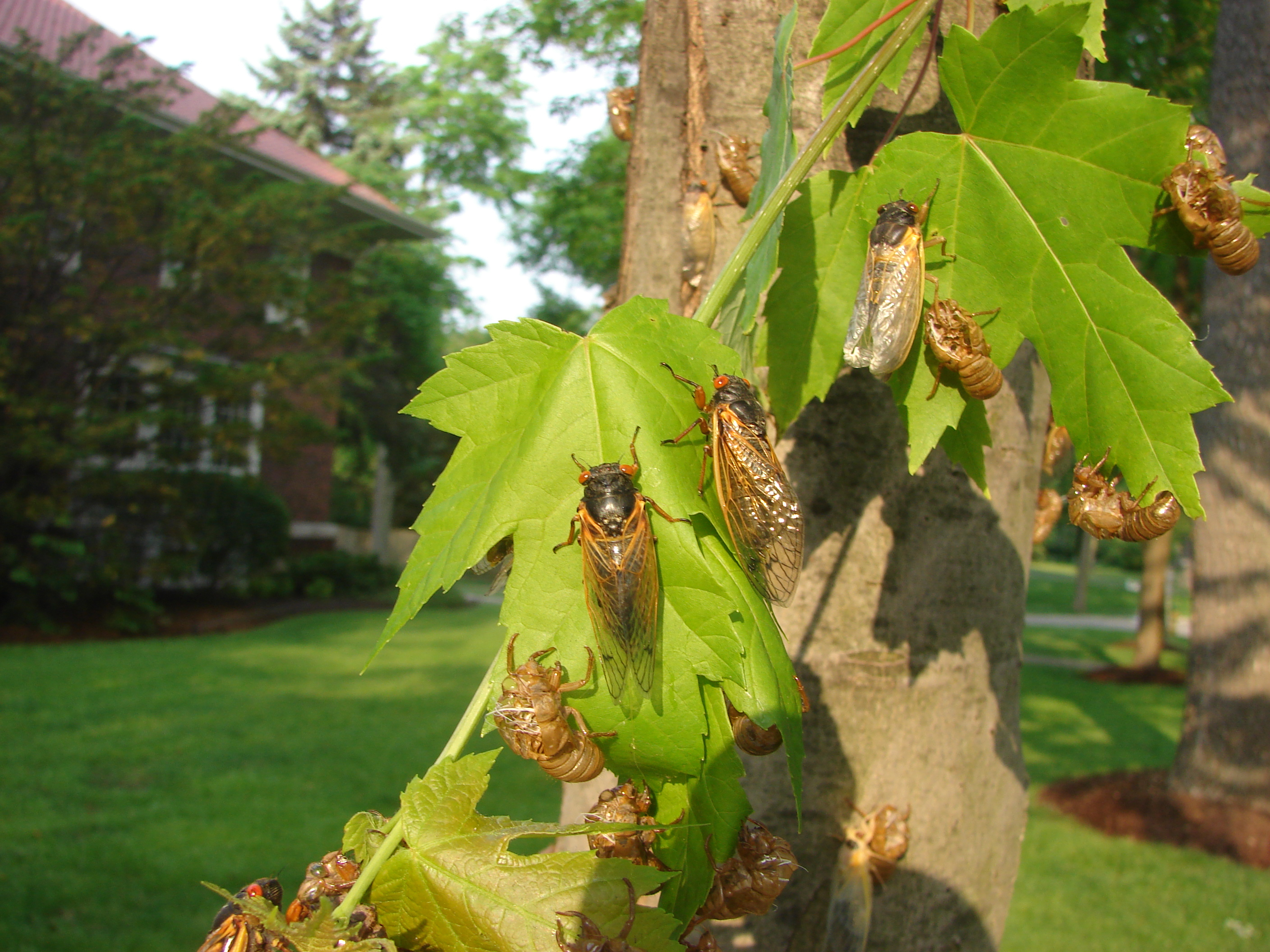Plans are underway at the Morton Arboretum to protect young trees from cicadas, but more importantly to learn from them this spring.
“We’re so excited,” said plant clinic manager Spencer Campbell. “It’s an ecological event, it’s fertilizer for our wildlife here and pollinators that depend on this food source.”
Campbell has been preparing for the invasion of billions of cicadas to hit northern Illinois.
“We know that cicadas want soil temperature eight inches deep and to be 64 degrees that start to wake them up; they’re going to start moving at that temperature,” said Campbell. “We know as of today our soil temperature is 54.7 degrees Fahrenheit.”
He believes the emergence of two broods of cicadas could happen mid-May; giving homeowners more than enough time to protect their small trees, shrubs, and flowers.
“You can buy this [tulle] at any boxed stores, any fabric stores, you can buy them online,” he said.
If you’re looking to protect your small trees, Campbell told NBC 5 you want to have your netting prepared as soon as possible. Ideally he said you want to have your trees wrapped by May 1.
“The most important part is to wrap around the branches because that’s what cicadas are going to emerge and that’s what they’re looking for,” he said.
The last emergence was May 29, 2007. The harmless insect is looking to complete its cycle and create a sight for everyone to see.
Feeling out of the loop? We'll catch you up on the Chicago news you need to know. Sign up for the weekly> Chicago Catch-Up newsletter.
“It’s going to be a rough couple of months for us, but it will come and go really quickly,” said JD Oeters who works as a branch manager for Chem-Wise Ecological Pest Management. “I think the general public is going to have a bit of an adjustment to do here once they emerge.”
Oeters said he’s been fielding calls from families and customers asking what more can they do.
“If you’re outside you have a broom you can knock down any of the molts that are on the trees,” he said. “If you see them around the house you can kinda sweep them away as well. They’re clumsy fliers they should fly away from you.”
While some can’t stand the sound of cicadas, others are ready to embrace the noise of billions if not trillions of cicadas in the double brood emergence.
“I think its exciting,” said Oeters. “This isn’t going to happen in another 200 plus years and it hasn’t happened in a really long time. There’s a lot of interesting science that’s going to come out from this.”



